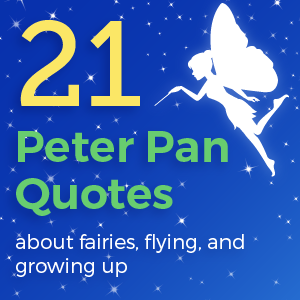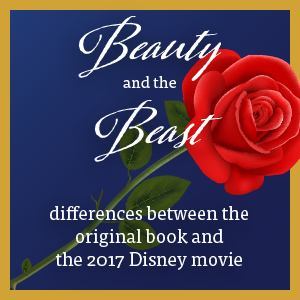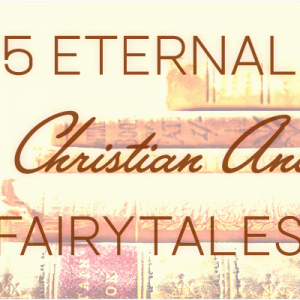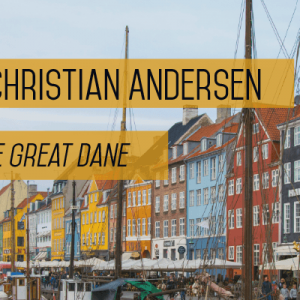21 Peter Pan Quotes About Fairies, Flying, and Growing Up

For the last century, children and adults alike have taken immense pleasure from Peter Pan, a tale of adventure, fantasy, and never-ending childhood.
Also known as Peter Pan; or, the Boy Who Wouldn’t Grow Up and Peter and Wendy, Peter Pan was written by Scottish playwright and novelist JM Barrie. First published as a play in 1904 and then as a full-length novel in 1911, the story tells of Peter and his many adventures on the island of Neverland. Filled with fairies, villains, mermaids, and friendship, Peter Pan remains one of the most beloved stories today.
Here’s a selection of the 21 best Peter Pan quotes along with some interesting facts about them:
All children, except one, grow up. They soon know that they will grow up, and the way Wendy knew was this. One day when she was two years old she was playing in a garden, and she plucked another flower and ran with it to her mother. I suppose she must have looked rather delightful, for Mrs. Darling put her hand to her heart and cried, “Oh, why can’t you remain like this for ever!” This was all that passed between them on the subject, but henceforth Wendy knew that she must grow up. You always know after you are two. Two is the beginning of the end.
(Peter Pan, Chapter I)
Sir James Matthew Barrie (1860 – 1937), the author of Peter Pan, was obsessed with eternal boyhood. Most biographers believe this obsession could be traced back to a tragedy in Barrie’s childhood.
In 1867, Barrie’s older brother David slipped on his ice skates and instantly died. David was only 13 years old. The only way Barrie’s mother was able to cope with this sudden loss was by imagining David as an eternal boy. It’s not hard to see why J. M. Barrie would be inspired to create a character like Peter Pan.
“Can anything harm us, mother, after the night-lights are lit?”
“Nothing, precious,” she said; “they are the eyes a mother leaves behind her to guard her children.”
Michael and his mother (Peter Pan, Chapter II)
Although we don’t often think of Mrs. Darling as a central character when reading this book, the protective role a mother plays in a child’s life is highly praised throughout Peter Pan. Indeed, Peter Pan wants Wendy to come to Neverland mainly because she will serve as a mother to his troupe of rowdy Lost Boys.
Perhaps this focus on motherhood was due to Barrie’s personal relationship with Sylvia Llewelyn Davies, the mother of the Llewelyn Davies boys who inspired Peter Pan. Sadly, Sylvia died of cancer at the age of 43. Anyone interested in learning more about Barrie’s relationship with the Davies should watch the highly praised 2004 film Finding Neverland.
Stars are beautiful, but they may not take an active part in anything, they must just look on for ever.
(Peter Pan, Chapter II)
While eternal boyhood may seem desirable, it’s also a kind of tragedy. Just like the stars, a boy who lives forever inevitably has to watch mortals age, sicken, and pass away. This bittersweet quality in Peter Pan is one of the major reasons this tale continues to resonate with readers around the world.
Oh, the cleverness of me!
Peter Pan (Peter Pan, Chapter III)
Barrie named his clever (or perhaps cocky?) protagonist “Peter Pan” drawing on two inspirations. The first inspiration has to do with the Ancient Greek god Pan. For those who remember their Greek mythology, Pan was half-goat and half-man and was often associated with frivolity, the woods, shepherds, and sex.
The first name Peter, on the other hand, comes from Peter Llewelyn Davies. Peter was one of the Llewelyn Davies boys Barrie first met in Kensington Gardens developed a relationship with. In total, there were five Llewelyn Davies children:
- Peter
- George
- John
- Michael
- Nicholas
You see, Wendy, when the first baby laughed for the first time, its laugh broke into a thousand pieces, and they all went skipping about, and that was the beginning of fairies.
Peter Pan (Chapter III)
Fairies play a significant role in the Peter Pan mythos. In the original stage version, one of the most important scenes in the play is when Peter’s fairy Tinker Bell drinks a poisoned bottle of medicine that the pirate Captain Hook intended Peter Pan to drink. As she’s on the verge of death, Tinker Bell tells Peter Pan she can only be brought back to life if enough people believe in fairies. Peter then asks the audience to clap their hands if they believe.
Although Tinker Bell is the closest fairy to Peter, she wasn’t as popular with audiences until the classic 1953 Disney film. Indeed, after Wendy has grown up and Peter visits her in Barrie’s play & novel, Peter mentions that he forgot about Tinker Bell and that she most likely passed away due to old age.
“Wendy,” he continued, in a voice that no woman has ever yet been able to resist, “Wendy, one girl is more use than twenty boys.”
Peter Pan (Peter Pan, Chapter III)
After Wendy captures and sews Peter’s shadow back on his body, Peter Pan forgets Wendy’s contribution and exclaims “Oh, the cleverness of me!” It’s only after he recognizes how he hurt Wendy’s feelings that he admits the quote listed above. While Peter Pan never grows up, it could be argued that he matures a bit through his interactions with Wendy.
“Wendy, Wendy, when you are sleeping in your silly bed you might be flying about with me saying funny things to the stars.”
Peter Pan (Peter Pan, Chapter III)
With this quote, Peter Pan lures Wendy and her brothers into taking the fateful trip to Neverland.
Interestingly, in the original play Peter Pan, there was no such thing as pixie dust to help children fly. Peter, Wendy, John, and Michael were simply able to fly without the aid of the fairies. It was only after Peter Pan became such a huge success that Barrie invented pixie dust. The reason? So many children who saw the play were jumping off their beds in an attempt to fly just like Peter Pan!
“But where do you live mostly now?”
“With the lost boys.”
“Who are they?”
“They are the children who fall out of their perambulators when the nurse is looking the other way. If they are not claimed in seven days they are sent far away to the Neverland to defray expenses. I’m captain.”
“What fun it must be!”
“Yes,” said cunning Peter, “but we are rather lonely. You see we have no female companionship.”
“Are none of the others girls?”
“Oh, no; girls, you know, are much too clever to fall out of their prams.”
Peter Pan and Wendy (Peter Pan, Chapter III)
In J.M. Barrie’s original Peter Pan, there are six Lost Boys in Peter’s troupe:
- Tootles
- Nibs
- Slightly
- Curly
- A pair of twins
If you’ve only seen the Disney animated version, then you probably know the Lost Boys by their distinctive animal costumes. In case you were wondering, here’s who’s who in the film: Tootles is the skunk, Nibs is the rabbit, Slightly is the fox, and the twins are raccoons. Instead of Curly, Disney replaced him with Cubby who is in a bear costume.
There’s one much-debated quote associated with the Lost Boys that claims Peter Pan “thins them out” whenever it appears the Lost Boys are “growing up.” The obvious interpretation is that Peter Pan literally kills the Lost Boys once he sees they are starting to become adults. Readers who don’t want to see Peter Pan in such a violent light like argue that this could simply mean the Lost Boys are sent out of Neverland once they’re time is up.
At the end of the day, the interpretation is up to you.
Fairies have to be one thing or the other, because being so small they unfortunately have room for one feeling only at a time.
(Peter Pan, Chapter IV)
When Peter Pan was first premiered in 1904, they didn’t have the technological wonders we enjoy today. So, whenever fairies appeared on the stage, someone would have to shine a light and have it reflect off of a mirror onto the stage. Nowadays, when directors put together stage productions of Peter Pan, they often use hi-tech lighting or puppets to represent the fairies.
“Would you like an adventure now,” he said casually to John, “or would you like to have your tea first?”
Peter Pan (Peter Pan, Chapter IV)
Even in Neverland, a Briton must have his tea!
In case you were wondering, the tradition of afternoon tea is usually credited to a woman named Anna Russell who served as the seventh Duchess of Bedford in the 1800s. Apparently, Russell was so annoyed that there were only two full meals in the day that she ordered everyone on her property to take tea and a snack in the afternoon. The custom became so popular that it spread throughout the UK.
Today, the tea-drinking tradition in the UK is still going strong. Recent estimates suggest UK residents drink about 62 billion cups of tea annually.
“Build a house?” exclaimed John.
“For the Wendy,” said Curly.
“For Wendy?” John said, aghast. “Why, she is only a girl!”
“That,” explained Curly, “is why we are her servants.”
John and Curly (Peter Pan, Chapter VI)
The modern children’s playhouse is a descendant of this “Wendy house” in Peter Pan. Barrie needed to create a small house just for Wendy that could be built in a matter of seconds on stage. For inspiration, Barrie drew on the washhouse behind his Scottish boyhood home.
The first makeshift Wendy house was first put together on stage in 1904. Due to the success of Peter Pan, English toymakers soon copied this design and sold it to parents.
To die will be an awfully big adventure.
Peter Pan (Peter Pan, Chapter VIII)
While death may not have touched Peter Pan, tragedy certainly befell many of the Llewelyn Davies boys. George died in World War I, Michael died in an apparent suicide-pact in Oxford, and Peter jumped under a London train in 1960. Thankfully, Nicolas (1903 – 1980) and Jack (1894 – 1959) seem to have had happier lives and less tragic ends.
There are many factors that might’ve led Peter to commit suicide. For starters, Peter was an alcoholic. Secondly, some biographers believe Peter discovered his George committed suicide shortly before jumping in front of a train. Third, Peter’s wife and children had Huntington’s disease. Last, but certainly not least, Peter was said to resent Barrie for creating Peter Pan in the first place and was angry Barrie took him out of his will before he passed away.
If you shut your eyes and are a lucky one, you may see at times a shapeless pool of lovely pale colours suspended in the darkness; then if you squeeze your eyes tighter, the pool begins to take shape, and the colours become so vivid that with another squeeze they must go on fire.
(Peter Pan, Chapter VIII)
This quote comes at the beginning of the chapter where Peter Pan and the rest of the gang visit the mermaids’ lagoon. For people who’ve only seen the Disney film, you might’ve spotted one mermaid who looks a lot like Ariel from A Little Mermaid.
Actually, some Disney fans believe this red-headed mermaid might be Ariel’s mother Athena. People who really get into Disney mythology have also suggested that Captain Hook might’ve killed Athena between the events of Disney’s Peter Pan and The Little Mermaid.
It was then that Hook bit him.
Not the pain of this but its unfairness was what dazed Peter. It made him quite helpless. He could only stare, horrified. Every child is affected thus the first time he is treated unfairly. All he thinks he has a right to when he comes to you to be yours is fairness. After you have been unfair to him he will love you again, but will never afterwards be quite the same boy. No one ever gets over the first unfairness; no one except Peter.
(Peter Pan, Chapter VIII)
This quote is yet another example of why Peter Pan holds a special position in children’s literature. Indeed, many adults could benefit from reading and re-reading this passage.
It’s inevitable that we will face unfair situations in our lives. While most of us don’t stop interacting with those around us after experiencing these scenarios, it’s undeniable that there is a change in how much we trust others.
Interestingly, psychologists suggest that whenever we are ever embroiled in an unfair situation, it’s best to be mindful of our situation and, in most cases, try to let it go. Holding on to anger and stress from these unfair scenarios can actually create more problems in our mind and body. Forgiveness is really the best medicine!
“Pan, who and what art thou?” he cried huskily.
“I’m youth, I’m joy,” Peter answered at a venture, “I’m a little bird
that has broken out of the egg.”Captain Hook and Peter Pan (Peter Pan, Chapter XV)
Although Peter Pan seems innocent enough in this quote, it might come as a shock to first-time readers that he will soon throw Captain Hook to his death. That’s right; in the original ship battle scene, Peter Pan kicks Hook into the mouth of a hungry crocodile. The popular 1991 film Hook simply can’t be based on the original Peter Pan novel or play.
There could not have been a lovelier sight; but there was none to see it except a little boy who was staring in at the window. He had had ecstasies innumerable that other children can never know; but he was looking through the window at the one joy from which he must be for ever barred.
(Peter Pan, Chapter XVI)
Windows and bars become important images at the end of Peter Pan. This is especially the case when Peter bars the windows that would allow Wendy, John, and Michael to return to the Darlings’ home in London.
Barrie most likely uses these images in quotes like this to express the themes of eternal boyhood and the inevitability of aging. While Peter Pan is frozen in the “ecstasies” of youth, he is “barred” from a full experience of life, which ripens in the maturity of adulthood. In particular, Peter Pan is “barred” from the joys of love and marriage, which is probably what Barrie is suggesting in this quote.
“She’s awfully fond of Wendy,” he said to himself. He was angry with her now for not seeing why she could not have Wendy.
The reason was so simple: “I’m fond of her too. We can’t both have her, lady.”
Peter Pan (Peter Pan, Chapter XVI)
Just before this passage, Peter Pan orders Tinker Bell to bar the window to the Darlings’ home so Wendy with think her mother “barred her out.” The thoughts listed above only come into Peter’s head as he sees Mrs. Darling crying. Although Peter later allows Wendy, Michael, and John back to their home, this quote reveals Peter’s arrogance.
It’s no wonder some readers are divided in how they feel about Peter Pan. Even Walt Disney thought Peter Pan was a bit too harsh in his screen version. According to Disney, Peter came across as far too “cold” in the 1953 film.
In time they could not even fly after their hats. Want of practice, they called it; but what it really meant was that they no longer believed.
(Peter Pan, Chapter XVII)
Perhaps the Darlings lost faith in Peter Pan’s magic, but Walt Disney never did.
Indeed, throughout his life, Disney cherished two memories associated with Barrie’s play. First, when Disney was a young boy, he spent all his hard-earned money to see a performance of Peter Pan starring Maude Adams. Shortly afterwards, Disney was cast as Peter Pan in a school production of the play. In later interviews, Disney said no other actor on earth more strongly believed he was his role than he did while portraying Peter Pan.
“I don’t want to go to school and learn solemn things.”
Peter Pan (Peter Pan, Chapter XVII)
Perhaps no quote best exemplifies what we now call “Peter Pan syndrome” than the one above. Psychologists now describe people who are unwilling to mature into the common roles of an adult (getting a job, marrying, etc.) to suffer from this syndrome.
Interestingly, Peter Pan was released at a time when there was a great fear in Great Britain that their boys were getting far too effeminate. Henry William Gibson’s Boyology was one of the most influential books released on this issue at this time. In this book, Gibson expressed his view that parents should not fear the wild nature of a boy because that’s the energy that turns a boy into an assertive man. Perhaps Peter Pan’s primitive behavior resonated with the Boyology movement.
Wendy was grown up. You need not be sorry for her. She was one of the kind that likes to grow up. In the end she grew up of her own free will a day quicker than other girls.
(Peter Pan, Chapter XVII)
There are a few hints in Peter Pan that Wendy isn’t the first girl to grow up on Peter. Some commentators believe Mrs. Darling may have traveled with Peter to Neverland when she was a girl. Readers point to various scenes where Peter reacts to Mrs. Darling’s presence both in the novel and play to make this argument. Of course, this is all conjecture, but keep a lookout for these subtle moments the next time you read Barrie’s work.
Just always be waiting for me.
Peter Pan to Wendy (Peter Pan, Chapter XVII)
Despite Peter Pan’s attempts to freeze Wendy in eternal youth, she has to grow up sometime. Indeed, a few years after the success of Barrie’s play Peter Pan he penned a closing scene called “When Wendy Grew Up – An Afterthought” in which Wendy is a married woman with a daughter named Jane.
When Peter Pan discovers Wendy grew up, he is extremely annoyed. Luckily for Peter, Jane decides she will go on an adventure to Neverland with Peter. If this scenario sounds familiar, perhaps you’ve seen the 2002 Disney film Return to Never Land. Disney filmmakers drew inspiration for this sequel from Barrie’s now rarely performed “When Wendy Grew Up – An Afterthought.”
Peter Pan‘s imaginative storyline, along with memorable quotes like these, has made it one of the most enduring stories for readers of all ages. Even if you’ve joined Wendy in the world of grown-ups, you’ll always remember the magic of childhood that JM Barrie so poignantly captured.
What’s your favorite Peter Pan quote? Let us know in the comments below!





Leave a Reply
Be the First to Comment!